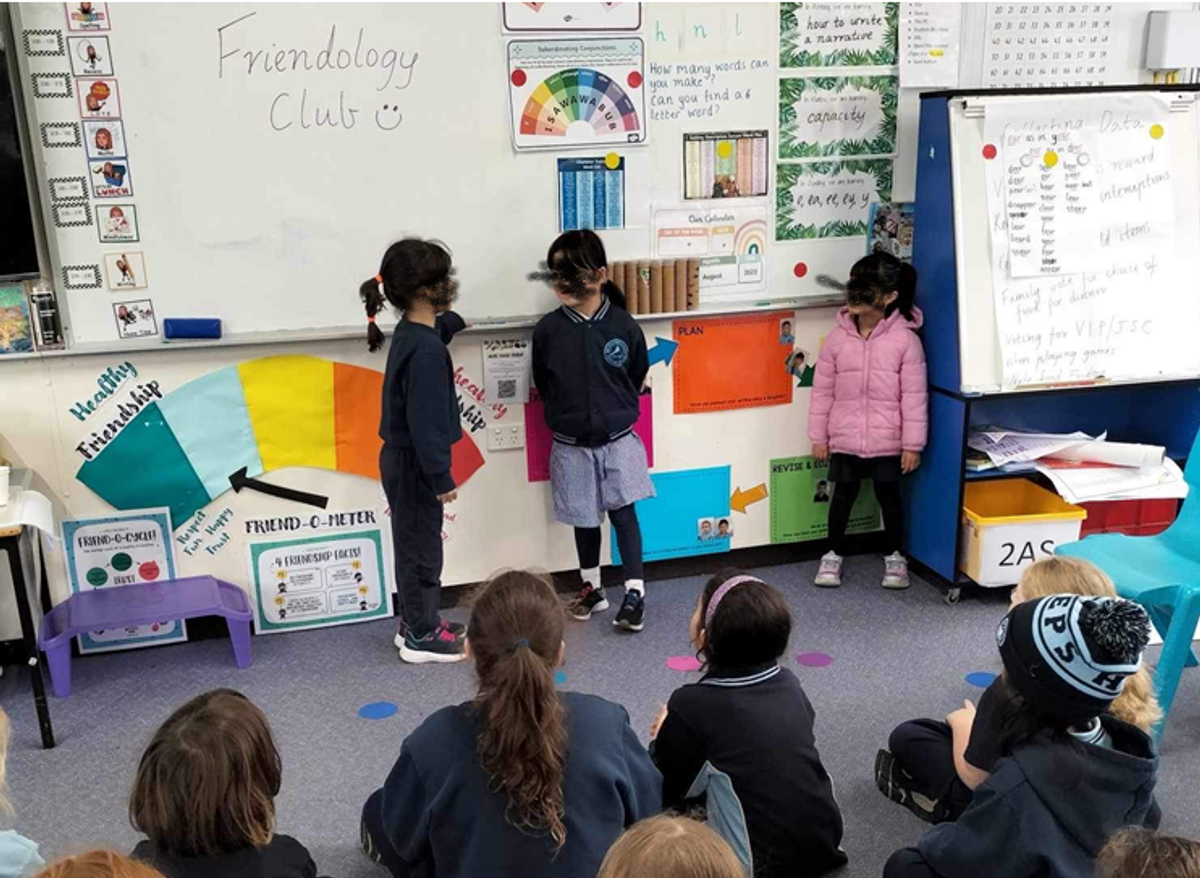Wellbeing - Assistant Principal
Marcus Leonard

Wellbeing - Assistant Principal
Marcus Leonard
The Department of Education recognises that mental wellbeing among young people has been under considerable strain. This has been due to many reasons over the past couple of years with the notable element of lockdowns springing to mind. It's really important that we all do our part to recognise and respond to any changes we see in our students. It may be that students are feeling more anxious than normal, or are finding it difficult to make connections at school with peers. These are all completely normal things for students to encounter. However, if they persist, at HEPS we can help. Our Chaplain Arne has worked with many students so far this year and offers students an opportunity to chat or to participate in small group activities. Our Friendology program is another way in which we promote positive mental health. Here is a photo from the weekly Friendology Club run by Ms S and Mrs Smith.


This is what the Department of Education recommends for families regarding children's mental health.
Positive mental health and wellbeing is important for your child or teen’s healthy development and learning. It supports them to manage the normal challenges of life.
Environments, experiences, relationships and individual characteristics all contribute to mental health and wellbeing.
For children and teens, wellbeing is supported when they:
It can be helpful to think of mental health and mental ill-health as existing along a continuum.
We all move along the continuum as we face challenges and situations that test our capacity to cope and change our mental health. Our mental health can change slowly or quickly.


Most people will experience changes in their mental health at some point during their lifetime. Social, emotional and environmental factors all influence our position along the continuum. Learn more about the mental health continuum.
Even if someone isn’t experiencing mental ill-health, that doesn’t mean their mental health is flourishing. Alternatively, it is possible to be diagnosed with a mental illness and still feel well and function effectively in many aspects of life.
As parents and carers, you’re already doing lots of things to support your child’s mental health and wellbeing. You can continue to protect your child’s mental health and wellbeing by developing and promoting:
For a range of videos and articles backed by Australian experts on how to support your child’s mental health, visit Raising Children Network.